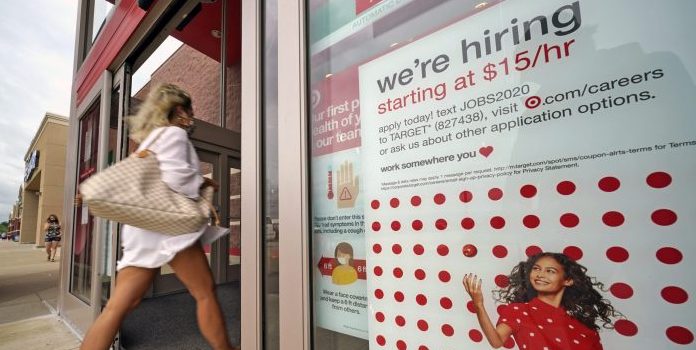(Tony Sifert, Headline USA) Supplemental unemployment benefits issued by the federal government between March 2020 and September 2021 as a response to the COVID-19 pandemic incentivized people not to work and created an “artificial shortage of labor,” according to a report published by the Texas Public Policy Foundation.
The TPPF report analyzed the effect of — among other pieces of legislation and executive orders — the Coronavirus Aid, Relief, and Economic Security (CARES) Act, passed in March 2020; President Trump’s Memorandum on Deferring Payroll Tax Obligations in Light of the Ongoing COVID-19 Disaster, signed in August 2020; and the American Rescue Plan Act of 2021, signed on March 11, 2021.
The cumulative effect of these federal acts “was to incentivize people not to work” and to slow economic recovery in those states that continued to participate in the federal program.
“Those states that ended the program early experienced substantially faster job growth in terms of how quickly they approached pre-pandemic employment levels,” the report concluded.
The report showed that, as of December 2021, only four states — Arizona, Idaho, Texas, and Utah — had “reached (and surpassed) their pre-pandemic levels of employment.”
All four had terminated federal supplemental benefits early.
“The takeaway is not just that some states improved their employment numbers and some didn’t,” said report author E.J. Antoni in a press release accompanying the report. “It’s that extending unemployment benefits had a significant negative impact on the ability of communities to recover from the pandemic.”
“Lives and livelihoods were put on hold for a much longer period than was necessary as a result of this wrong-headed policy,” Antoni continued.
In May 2021, Montana Gov. Greg Gianforte appeared on FOX Business to criticize the “continual stream of initiatives out of Washington that disincentivize work.”
“Nobody starts life hoping they’re going to grow up and become dependent on the government,” Gianforte said. “We need unemployment as a safety net for folks that find themselves in a rough spot, but it shouldn’t be a permanent status.”

